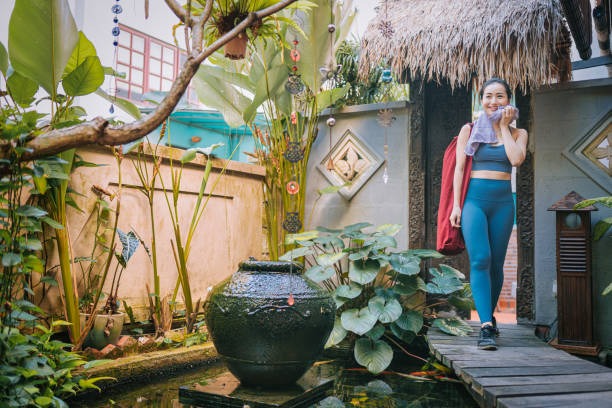Many travellers seek more than just sightseeing and shopping during a holiday. Some look for peace, rejuvenation, and a fresh sense of balance. Thailand, with its calm atmosphere, soothing natural surroundings, and wellness culture, attracts individuals who want to slow down and reset their lives.
Those considering a wellness retreat in Thailand often imagine days filled with meditation, yoga, spa treatments, and nourishing meals. While these elements are part of the experience, planning such a retreat involves several practical considerations. This article outlines key points to keep in mind before booking a healing getaway in one of Southeast Asia’s most visited destinations.
Choose the Right Region for Your Goals
Thailand offers various landscapes—beaches, hills, forests, and islands. The region you choose can influence the mood and focus of your retreat. If relaxation and silence are priorities, select a quieter coastal area. If a connection with nature or hiking trails appeals to you, consider mountainous or forested areas. Each region brings its own energy and pace. Before making a decision, think about the kind of setting that supports your wellness goals. Peaceful surroundings play a big role in enhancing relaxation, reflection, and physical healing.
Time Your Visit Based on Weather and Crowd Levels
Thailand’s climate varies throughout the year. From November to February, the country experiences cooler and drier conditions, making this period popular for travellers. However, the high season also attracts larger crowds and higher costs. The shoulder months—just before or after peak tourist periods—may offer a more comfortable balance between good weather and fewer people. Booking your retreat during these months can improve your experience while possibly reducing expenses.
Understand the Type of Program Being Offered
Every retreat follows a different structure. Some focus on physical health through yoga and movement. Others emphasise mental calm through meditation and mindfulness. A few combine both with meal plans, spa therapies, and educational workshops. It is important to match the programme with personal goals. Ask for the daily schedule and see if the activities align with your expectations and fit your energy levels and preferred pace. The clarity of the schedule can affect overall satisfaction.
Check for Professional Guidance and Safety Measures
From yoga instructors to nutritionists, the presence of certified individuals adds credibility and ensures safe practices. Look for information about staff qualifications, years of experience, and participant feedback. Safety is another important aspect. Whether it’s food hygiene, activity supervision, or emergency readiness, a good retreat centre takes these seriously. If you have health conditions or dietary needs, confirm in advance whether accommodations can be made.
Budgeting Beyond the Booking Fee
Many travellers overlook the extra expenses involved in a retreat. While the booking fee may cover accommodation, meals, and basic activities, there might be costs for transport, optional therapies, and additional classes. Before confirming, ask for a breakdown of what is included. Allocate funds for commuting within Thailand, shopping for essentials, or tipping service staff—a better financial plan for peace of mind during your stay there.
Things to Pack for a Comfortable Stay
To make the most of your stay, consider packing the following:
- Comfortable clothing for yoga, meditation, and outdoor walks
- Reusable water bottles to stay hydrated while being environmentally responsible.
- Personal hygiene products that suit your skin type
- Notebook or journal for writing reflections or tracking progress
- Essential medicines if you have regular prescriptions
- Sandals or slip-ons for moving around the property
- Modest wear if the retreat involves visits to temples or local villages
Packing light but thoughtfully improves comfort and keeps the focus on well-being rather than logistics.
Cultural Awareness and Local Etiquette
Thailand is known for its strong cultural values and respectful social norms. Understanding basic etiquette can enhance your experience and help you connect with locals. Dress modestly, especially during activities involving local communities or sacred spaces. The practice of removing shoes indoors, offering respectful greetings, and avoiding loud behaviour is appreciated. Showing cultural sensitivity contributes to a smoother interaction with staff, locals, and fellow participants.
Read Reviews and Ask Questions
One of the easiest ways to assess a retreat’s quality is by reading genuine reviews from past visitors. Look for comments about accommodation, cleanliness, food quality, and the overall tone of the place. Balanced reviews—highlighting both strengths and areas of improvement—offer the most helpful insight.
A wellness retreat in Thailand offers an opportunity to recharge, heal, and refocus. However, proper planning is key to enjoying the experience to the fullest. From choosing the right location and programme to understanding costs and preparing thoughtfully, several steps go into a successful booking. When done with care and attention, a retreat can provide much more than relaxation—it can become a life-changing journey.



